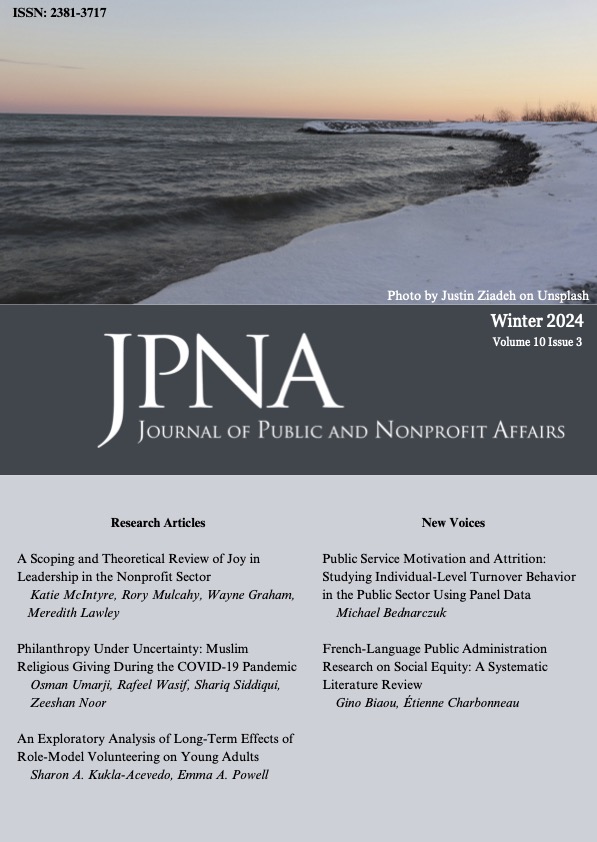French-Language Public Administration Research on Social Equity: A Systematic Literature Review
DOI:
https://doi.org/10.20899/jpna.nsb51y51Keywords:
Systematic Literature Review, Social Equity, Knowledge Sharing, FrenchAbstract
Despite the availability of freely accessible translation tools, research conducted in languages other than English is often overlooked. Findings from foreign contexts are lost, undermining the boundary conditions of theories. This systematic literature review takes stock of methods, theories, and practical recommendations developed in French-language social equity research. Overall, the results suggest that French-language social equity research offers relevant but not in-depth practical recommendations, encompasses a small proportion of papers referring to theories, and is more qualitative method-oriented than quantitative. Our results complement previous findings suggesting the dominance of the quantitative approach to social equity research by bringing to light many qualitative studies. Crucially, unlike English-language social equity research, this study suggests that French-language social equity research rarely focuses on race and ethnicity. Inter-organizational equity, along with regional, intergenerational, and gender equity are frequent loci. The finding of this study bridges a heeded segment of Public Administration scholarship, fostering knowledge sharing across languages and scholarly communities.
Downloads
Published
Issue
Section
License
Authors who publish with this journal agree to the following terms:
- Authors retain copyright and grant the journal right of first publication with the work simultaneously licensed under a Creative Commons Attribution License that allows others to share the work with an acknowledgment of the work's authorship and initial publication in this journal.
- Authors are able to enter into separate, additional, contractual arrangements for the non-exclusive distribution of the journal's published version of the work (e.g., post it to an institutional repository or publish it in a book), with an acknowledgment of its initial publication in this journal.
- Authors are permitted and encouraged to post their work online (e.g., in institutional repositories or on their website) prior to and during the submission process, as it can lead to productive exchanges, as well as earlier and greater citation of published work (see, The Effect of Open Access).







